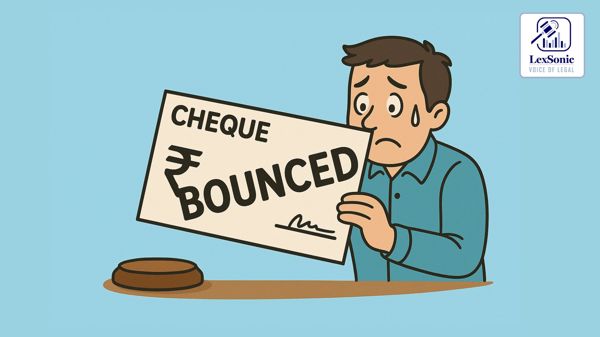Cheques Don't Travel Well? Indian Investor Battles UAE Company Over Dishonoured Payment.
22 April 2024
Cheque Bounce >> Civil/Debt | Negotiable Instruments Act >> Criminal Law
In today's globalized world, financial transactions often transcend borders. But what happens when a cheque drawn on a foreign bank bounces? A recent case in India grapples with this very question, raising a fascinating clash between national laws and highlighting the complexities of handling dishonoured foreign cheques. The case involves an Indian investor, a UAE-based company, and a bounced cheque, forcing the Indian court to determine which country's legal framework applies in this situation.
The Case:
An Indian investor made a financial investment in a company registered in UAE. The company issued cheques drawn on a Dubai bank (payable in AED) as repayment. However, some cheques were dishonoured, leading the investor to obtain a judgment against the company in UAE courts. Later, another cheque was presented at the investor's bank in India, but it also bounced. This resulted in the investor filing a complaint against the company in India under Section 138 of the Negotiable Instruments Act (NI Act) for dishonouring the cheque.

The Company's Defense:
The company argued that the NI Act shouldn't apply as the entire transaction – from issuing the cheque to its dishonour – took place in UAE. They pointed to Section 134 of the NI Act, stating that UAE law governs the liability of the drawer (the company) in such cases. Additionally, they cited Section 135, arguing that the cheque was specifically payable in Dubai, not India. Finally, they claimed Indian courts lacked jurisdiction due to the foreign nature of the transaction.
The Investor's Rebuttal:
The investor countered by highlighting the company's delay in filing a petition against the complaint. They also emphasized their right to present the cheque at their Indian bank, as allowed by Section 70 of the NI Act. Furthermore, they argued that recent amendments to the NI Act override the case law cited by the company (Pale Horse Designs).
Court's Considerations:
The court had to consider several factors, including the classification of the cheque as a foreign instrument (Sections 11 & 12 of the NI Act) and the applicability of Section 134, which suggests UAE law governs the liability of the drawer. Section 135 might not be relevant as the cheque wasn't specifically payable in India. Additionally, Section 70 applies to promissory notes and bills of exchange, not cheques (Section 72). The court also considered the recent Dashrath Rupsingh Rathod case, which suggests the location of the dishonoured cheque (likely the bank's location) could determine jurisdiction.
Court's Decision:
Given the foreign nature of the transaction and the cheque, the court seemed to favor the company. The investor may need to pursue legal action in UAE based on the relevant laws in that country.
Key Takeaways:
- This case highlights the challenges of navigating legal issues involving foreign instruments.
- The judgment in Pale Horse Designs (supra) was a key point of reference.
- A recent amendment to Section 142 of the NI Act strengthens Indian court jurisdiction in such cases.
- The Supreme Court has recognized the unique nature of Section 138 offenses, which combine elements of civil wrongs and criminal aspects.
